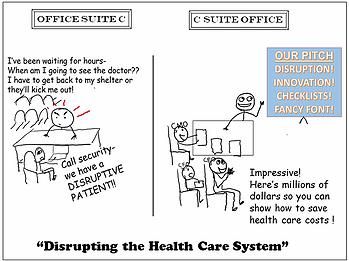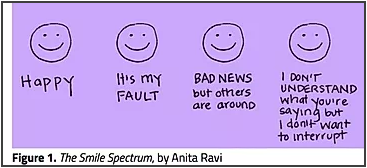This piece shares why "refer to social work" is not the natural conclusion of a physician's role in addressing social determinants of health among patients experiencing homelessness.
This illustrated essay describes the experience of vicarious trauma from a PurpLE perspective.
This illustrated essay provides a PurpLE perspective to counter misconceptions regarding the circumstances of people who experience sexual violence.
This piece describes Dr. Ravi's visit to the nation's largest family detention center to help asylum seekers.
This medical narrative highlights ways in which comics reflect Dr. Ravi's experience as a primary care physician striving to offer sensitive care to people who have experienced sexual violence.
This piece describes why physicians must "unlearn" medicine in order to do right by their patients.
Sexual Assault Awareness Month Blog Part 3:
"The clinical team could not have known all of these things. But the unintended impact of their inclusions and omissions lives on in the medical charts of our patients, with far-reaching consequences- particularly for those who are already vulnerable to poor healthcare."
Sexual Assault Awareness Month Blog Part 2:
"Z53.21 is the diagnosis code I dread. When we do our medical charting, it’s the code that we use for: “Procedure and treatment not carried out due to patient leaving prior to being seen by health care provider”. In medical slang we say “left without being seen.”
Dr. Ravi was invited to be a guest blogger for the Reproductive Health Access Project during Sexual Assault Awareness Month. In Part 1, she shares how her experiences working with incarcerated sex trafficking survivors informed her approach to healthcare delivery.
In this "Story Slam," Dr. Ravi shares how working with sex trafficking survivors on Rikers Island impacted her approach to clinical care.

Through a variety of storytelling modalities including drawing, writing, and live presentations, our CEO Dr. Ravi frequently shares lessons learned from her experience working with people who have experienced gender-based violence. These stories highlight why the PurpLE Health Foundation initiatives are survivor-informed and sensitive to the social determinants of health.







